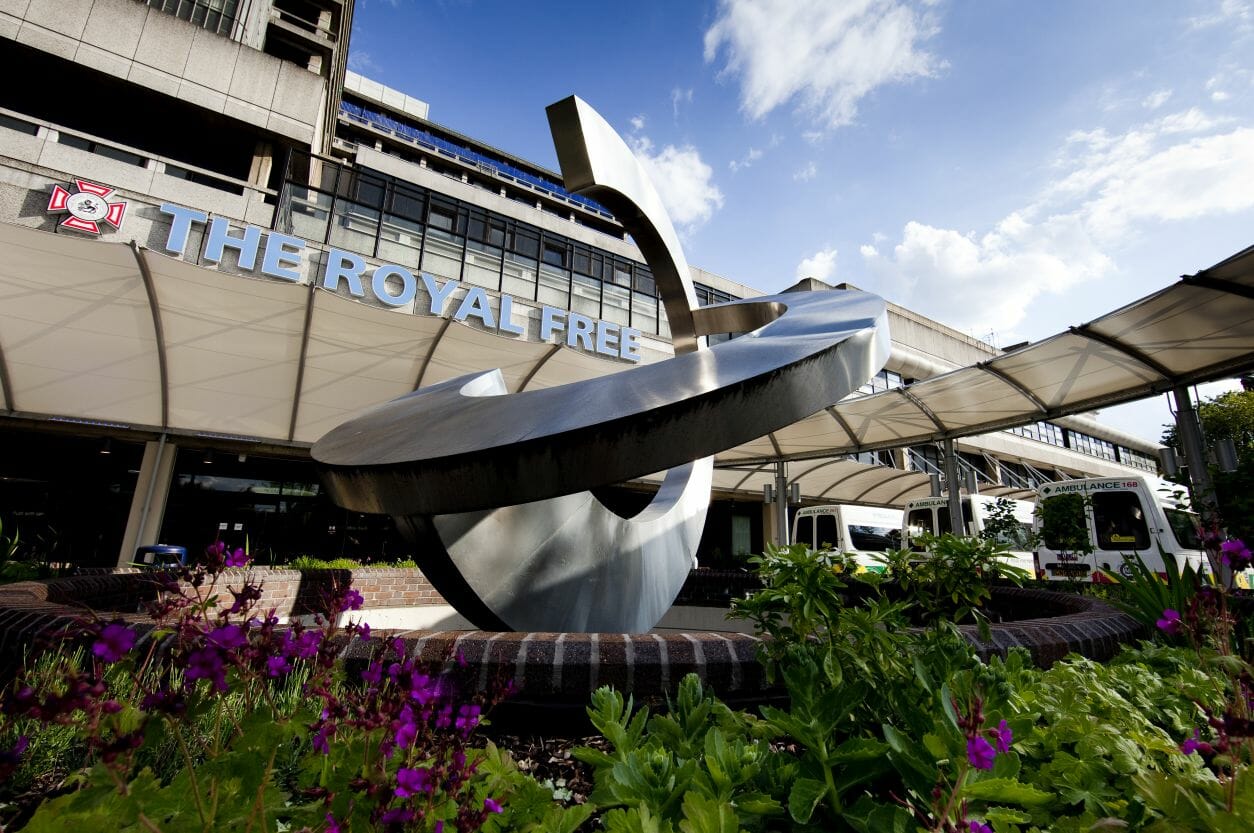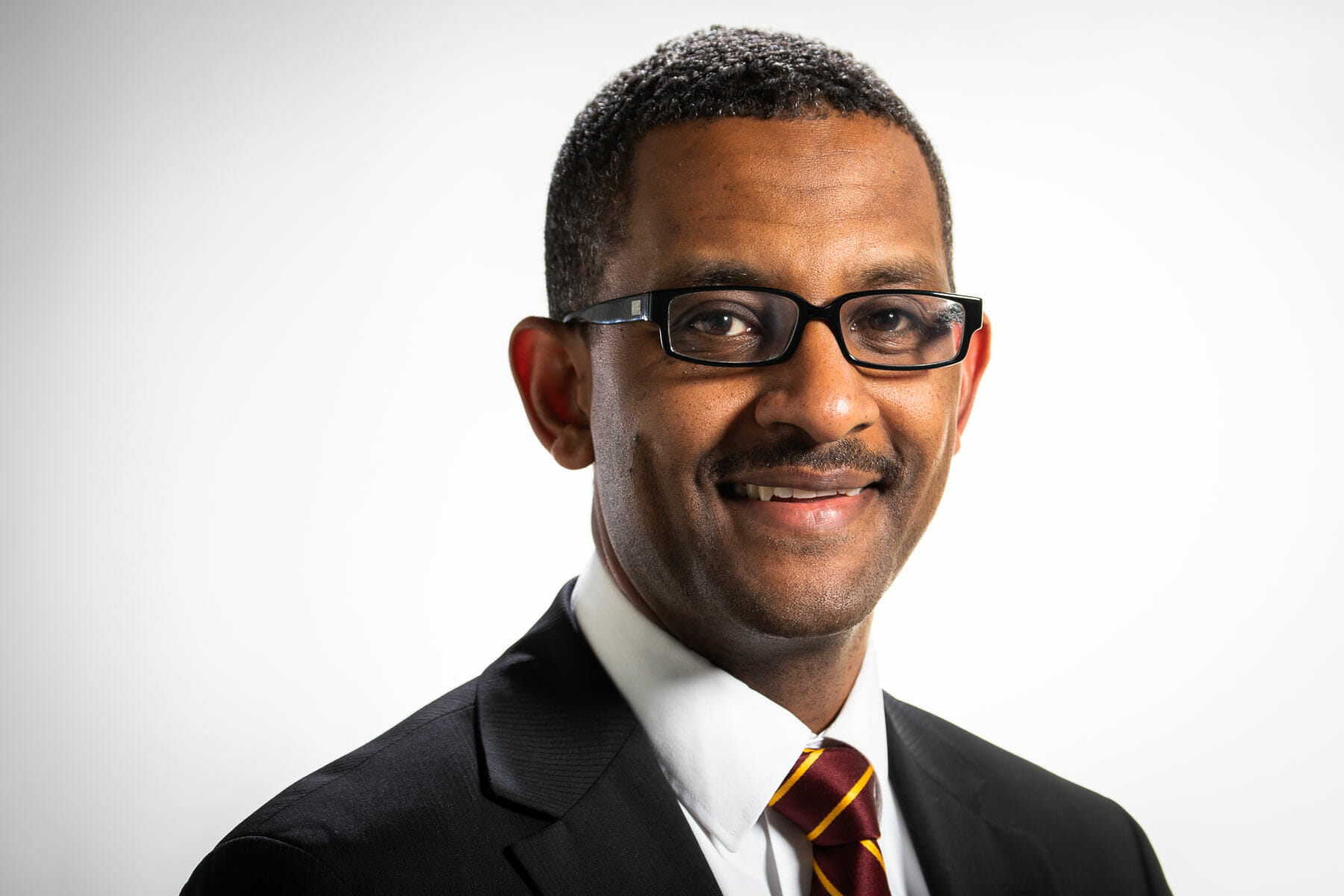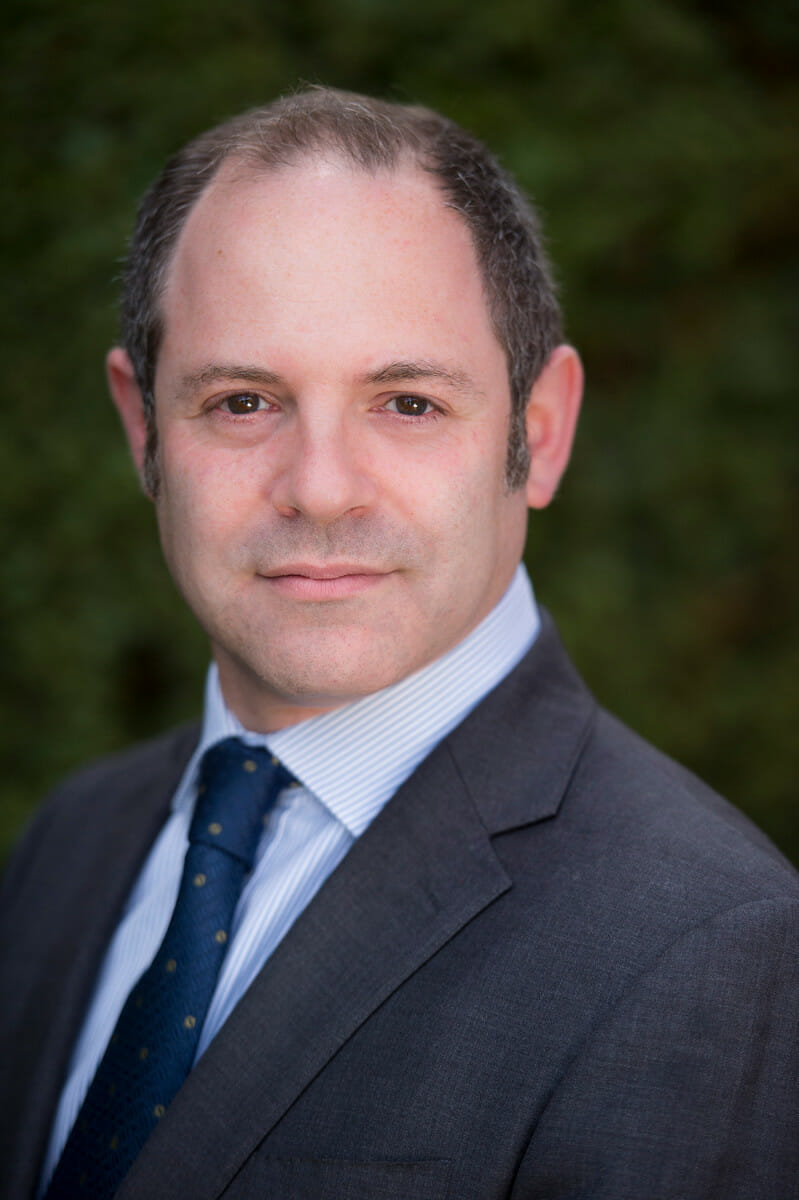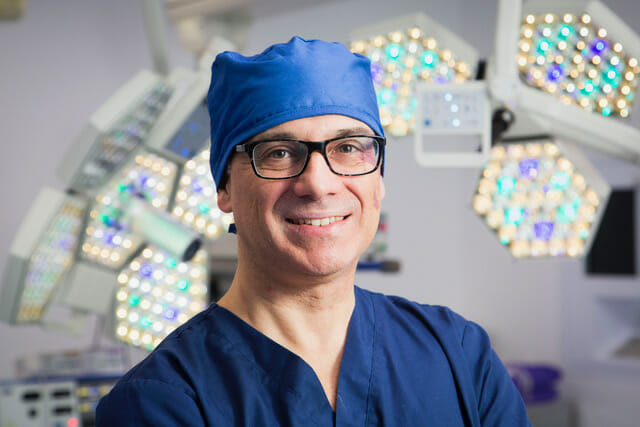Colorectal cancer
Our private colorectal cancer service is provided at the Royal Free Hospital in Hampstead.
We offer a holistic approach to colorectal cancer care that extends far beyond treatment on its own. By becoming a private patient with us, our large multidisciplinary team of highly skilled consultants will work around you to provide all the support you need throughout your treatment journey.
What is colorectal cancer?
Colorectal cancer is a cancer that starts in the large intestines (or large bowel) and the back passage (rectum). It is also known as bowel cancer.
Causes of colorectal cancer
Colorectal cancer is believed to develop through a complex interplay of genetic, environmental and dietary factors.
One of the most well-understood pathways associated with colorectal cancer is known as the ‘adenoma-carcinoma sequence’. This refers to a series of steps where benign polyps in the bowel undergo several mutations over several months and years, eventually transforming into a malignant (or cancerous) tumour.
If these tumours spread to other parts of the body (metastasis), they can move beyond the bowel and potentially cause cancers in other areas.
Symptoms
The symptoms of colorectal cancer can vary and sometimes be fairly subtle. However, it’s important to be able to recognise these signs, so that you can seek medical intervention as early as possible.
Some of the main symptoms to look out for include:
- Bleeding or a clear liquid coming from the back passage
- Discharge of mucus
- Any changes in your bowel habits (such as an increase in the frequency of bowel movements or a shift towards needing to visit the bathroom more urgently)
- Abdominal pain
- Loss of appetite
Should you experience any of these symptoms, one of our consultants will be able to screen you to investigate whether they’re being caused by colorectal cancer or another type of gastrointestinal condition.
Who is at risk of having colorectal cancer?
There are a number of risk factors that may increase your likelihood of developing colorectal cancer:
- Diet: Consuming a high intake of red meats and saturated fats or a low intake of fresh fruits and vegetables and dietary fibre may increase your risk of colorectal cancer.
- Lifestyle factors: if you have a high BMI, are overweight, smoke or have a high alcohol intake, this may increase your risk.
- Ageing: You are more likely to develop colorectal cancer as you age, with the highest rates occurring in people over the age of 80.
However, recent studies show that colorectal cancer is increasingly becoming common in younger generations, with as young as a 17-year-old being diagnosed with this cancer. - Existing medical conditions: If you are diagnosed with a condition like inflammatory bowel disease, you may be more likely to develop colorectal cancer.
- Number of polyps: Having a large number of polyps (benign growths) in your bowel can leave you more susceptible to developing colorectal cancer.
However, while these risk factors may be associated with an increased risk of colorectal cancer, the exact cause remains multifactorial and complex.
It’s important to see your GP or book an appointment with one of our consultants if you’re concerned.
How is colorectal cancer diagnosed?
There are several steps involved when diagnosing colorectal cancer. This is to not only ensure a high level of accuracy but also help determine the stage of the cancer.
The diagnostic process will typically involve the following steps:
- Initial assessment: a comprehensive clinical assessment including a digital rectal exam and various blood tests.
- Faecal immunochemical test (FIT): a pivotal tool used in modern diagnostics and provides a quantitative measure of blood in your stool, helping us determine how urgently you will need to be referred.
- Colonoscopy: if your FIT test is positive, the next step will often be an optical colonoscopy. This will involve using a camera at the end of a long, thin tube to examine the inside of your bowel.
- Imaging: if you are diagnosed with bowel cancer, imaging techniques using CT scanners and MRI linac machines will help determine the stage and extent of your cancer and provide detailed images to guide treatment decisions.
At the Royal Free London PPU, we have access to the very best and latest diagnostic equipment. This, combined with the outstanding personalised care provided by our team of nurses and support staff, means that you will be supported throughout every stage of your journey – from your initial diagnosis to your aftercare programme.
Contact us Monday to Friday, 8am - 6pm:
Booking line: +44 (0) 20 4527 2993
The procedures we use to treat colorectal cancer
If you are diagnosed with colorectal cancer, your consultant will discuss and recommend various treatment options based on factors like your age, lifestyle needs and the stage that your cancer is at.
The treatments that are available for colorectal cancer have also advanced significantly over the years, and there are now a wide variety of personalised and effective options available to patients.
Some of the main treatments you may be recommended include:
- Surgery: this may be carried out to remove the tumour from your bowel and will normally be performed laparoscopically (a form of keyhole surgery that uses only small incisions). Following this procedure, you may need a colostomy or ileostomy to support your recovery.
- Chemotherapy: this form of treatment uses specific medications to kill cancer cells.
- Radiotherapy: this treatment uses incredibly precise beams of radiation to directly target tumours and kill cancer cells.
In most cases, many patients with colorectal cancer will receive what’s known as a multi-modality treatment. This is seen by many as the gold standard for patients with locally advanced and metastatic colorectal cancer. It will typically involve receiving chemotherapy and radiotherapy as a first-line treatment, followed by colorectal surgery and further chemotherapy.
However, your consultant will advise you on which treatment plan is best suited to your exact needs.
At the Royal Free London PPU, we offer state-of-the art facilities and perform minimally-invasive surgeries such as laparoscopic (keyhole surgery) or robotic surgery with the lates Da Vinci surgical system. Our private oncology treatment suites (POTS) are also available for cancer treatments.
Risks associated with colorectal cancer treatments
As with any form of treatment or surgical procedure, there are various risks or side effects associated with colorectal cancer treatments. However, these will vary depending on the type of treatment being given.
- The side effects associated with colorectal surgery can also include the use of temporary or permanent stomas (an opening in the stomach that’s connected to your digestion system and allows waste to be removed), changes in bowel habits and potential surgical complications.
- Due to the type of drugs used during chemotherapy, some patients may experience what’s known as neuropathy which can cause a tingling sensation, particularly in the hands and feet.
- Radiotherapy is generally well-tolerated but it can still cause side effects like fatigue, skin irritation and gastrointestinal disturbances.
Our multi-disciplinary team are experts in treating colorectal cancer and will keep you well informed about what to expect throughout your treatment, including any potential side effects.
Aftercare
Your comfort and care are our primary concerns. That’s why we’re proud to provide you with an extensive aftercare support dedicated to ensuring you make a full recovery as quickly as possible.
Your specific aftercare support will vary depending on the type of treatment you receive. If you are recommended for colorectal surgery, for example, you will normally stay in the hospital for between five to seven days after the procedure so that you can be regularly monitored.
During your first few days post-surgery, you may also experience slow progress. However, this will typically improve as you begin to eat, regain mobility and have any tubes or catheters removed. Before you’re fully discharged from the hospital, we will also make sure you’re mobile, able to eat and have a restored gut function.
Once you’re back at home, you will then need to avoid any heavy lifting or strenuous activity for six weeks, and follow any specific dietary requirements set by your surgeon.
Our dedicated team will be there to support you throughout your recovery, providing you with expert nutritional advice and putting you into a program of surveillance to ensure your optimal recovery and quality of life.
Why choose Royal Free London for colorectal cancer treatment
At the Royal Free London PPU, we are committed to ensuring each of our patients receives the best possible care. We’re always on hand to help with any psychosocial, nutritional, physiotherapy or lifestyle adjustments you may have during your colorectal cancer treatment.
We also take immense pride in providing world-class multidisciplinary care for patients with colorectal cancer. Our team is comprised of leading experts from across the globe who specialise in a wide variety of disciplines, including colorectal surgery, oncology radiology, nurses, allied professionals, and dieticians who provide a compassionate service to ensure your comfort and safety during your time with us.
Through our commitment to delivering high levels of comprehensive patient care, we ensure that every colorectal cancer patient receives a treatment plan tailored to meet their individual needs and circumstances.
We also provide our private patients with dedicated access to our state-of-the-art facilities where we can perform various colorectal cancer treatments using the latest advanced radiotherapy medical equipment, PET-CT scanners and cutting-edge surgical technologies.
Our clinical team is available 24/7 to provide you with the care you need.
If you need colorectal cancer support, simply get in touch with us and we’d be more than happy to answer any questions or concerns you might have.
Meet our consultants
We work with leading experts who are all supported by the expertise of a multidisciplinary team. Our specialist team of doctors and surgeons includes:
Mr Daren Francis
Royal Free Hospital, Hampstead
The Private Patients Unit at the Royal Free Hospital was established in 1980.
The unit is part of the NHS and is wholly owned by the Royal Free London NHS Foundation Trust. We offer you access to some of London’s most experienced specialists, all of whom work as NHS consultants at our facilities.

Further information and support
Funding your treatment
Get immediate access to the care you need with self-funding or private health insurance.
Contact us
If you would like to contact another department within our hospitals.
Investing in the NHS
The NHS is an important part of what we do at Royal Free London which is why we reinvest our profits back into it. Our investment provides life-saving equipment and supports medical research to ensure better healthcare for all. Find out how we invest in the NHS.












